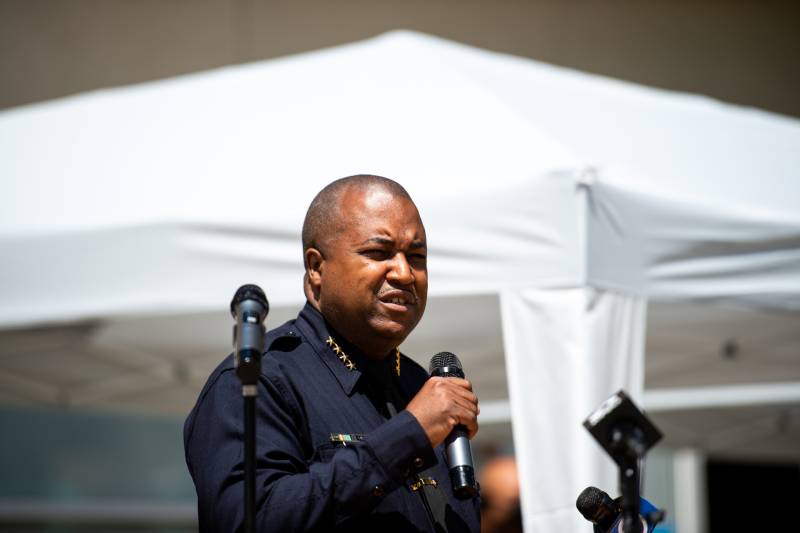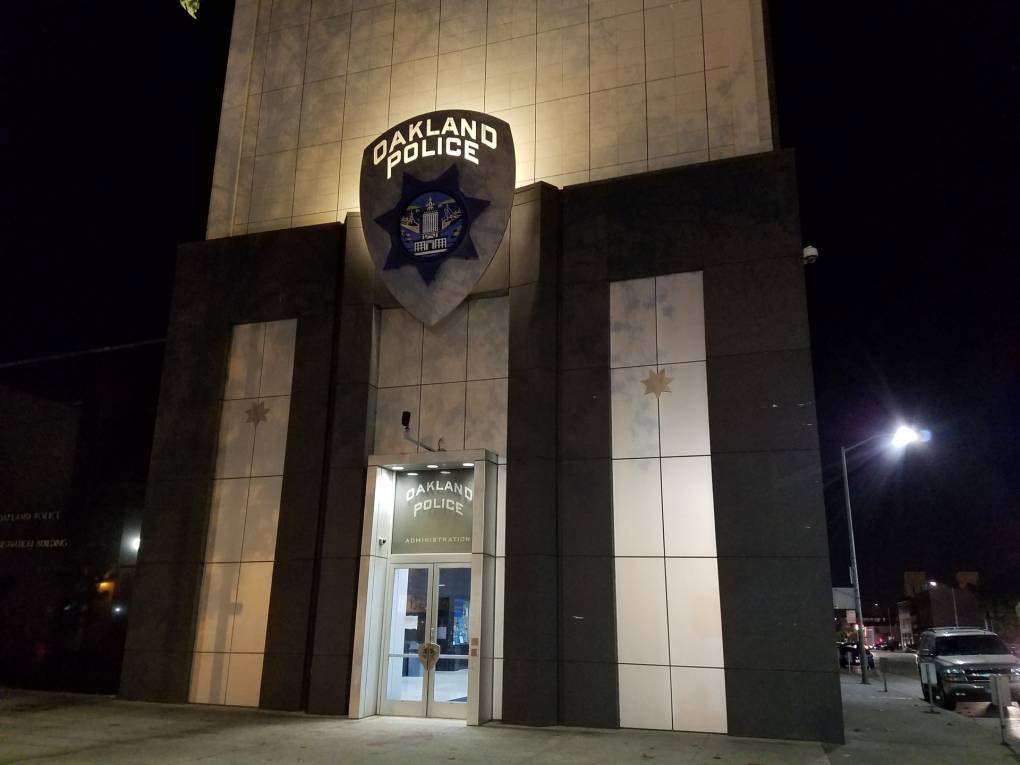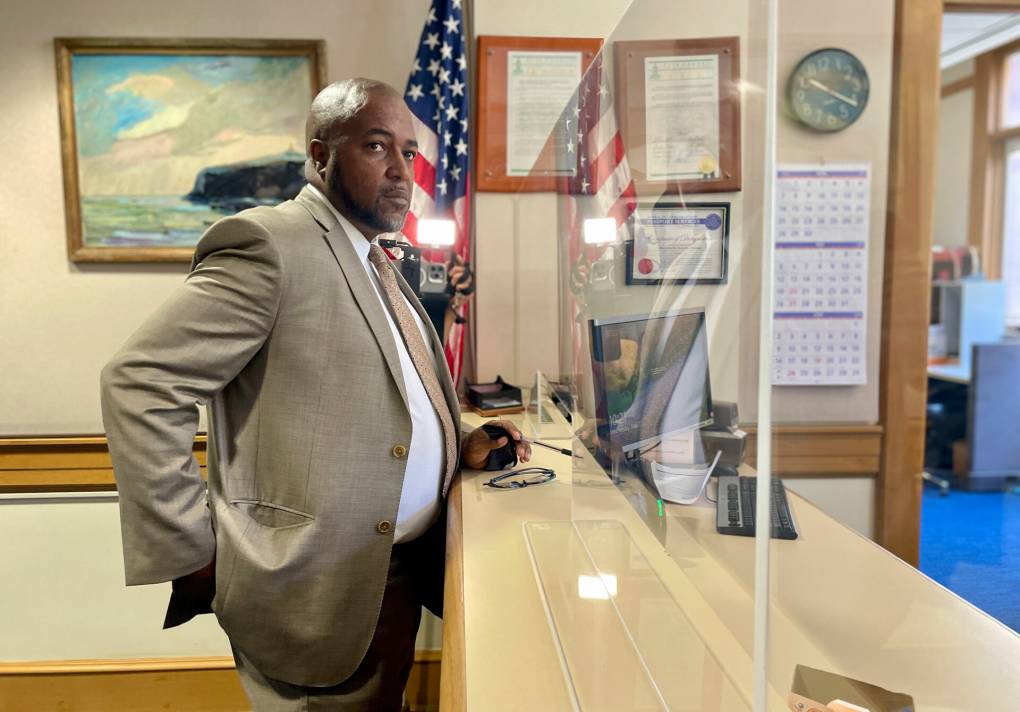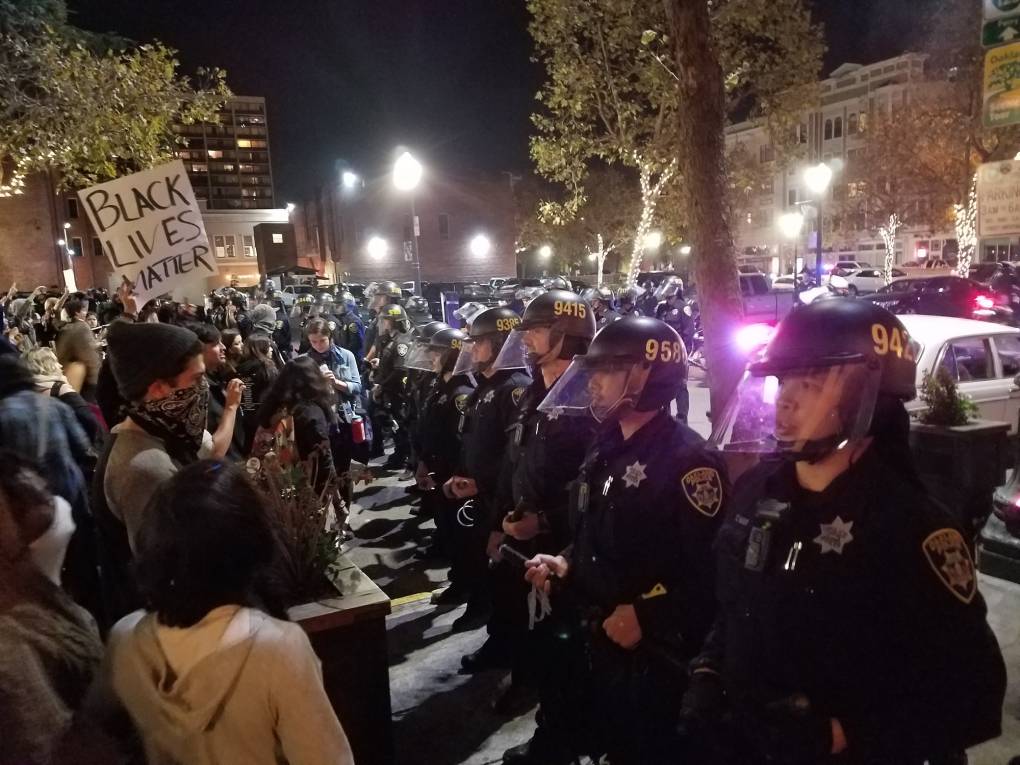“The chief did nothing wrong here,” said John Burris, the longtime civil rights attorney, who supports Armstrong. “And that’s the point that I was arguing at the very outset, is that the investigative report reached by the lawyers and the investigators really jumped to conclusions and made assertions, made assumptions, that when you analyzed the report, the facts did not support it.”
Burris said Armstrong’s firing heavily slowed OPD’s efforts to get out from under federal oversight, which began in 2003 after a group of officers were exposed for misconduct, including the beatings of Black people in West Oakland.
“This [firing] became a major stumbling block and set us back,” he said, adding that if Armstrong is not reinstated, it could send a message that any police chief can be fired without due process or cause, which could harm future hiring efforts.
Oakland’s City Charter doesn’t allow for a mayor to re-hire a police chief. Instead, the chief must go through the police commission’s hiring process.
In a statement, Thao told KQED that her decision to fire Armstrong was because he immediately dismissed the investigation’s allegations as mistakes, and he insisted the officer had already been held accountable.
“Oakland needs leaders, including at OPD, who will stand up and make tough decisions in the name of accountability and community trust,” she said. “By immediately and prematurely standing up for himself personally, Mr Armstrong failed to stand up for accountability at OPD.”
“His conduct forced me to make one of the most difficult decisions I have ever had to make. I am proud that I, with the support of my administration, faced the decision head on and did what I knew in my heart was right for Oakland, fully understanding the controversy that might follow,” Thao added. “I will continue working hard and making tough decisions to improve our police department.”
Thao placed Armstrong on paid administrative leave in January, the same month allegations emerged that the Oakland Police Dept. improperly investigated misconduct charges against Sgt. Michael Chung, who was accused of a hit-and-run collision in 2021 and of discharging a firearm in an OPD elevator in 2022. He also admitted to subsequently throwing the bullet’s shell casing off the San Francisco-Oakland Bay Bridge in a bid to cover his tracks.
The incidents were found to have been minimized and mishandled by OPD’s internal affairs investigators, according to a report by law firm Clarence Dyer & Cohen, LLP. That firm was retained by the city of Oakland at the behest of Robert Warshaw, the federal monitor overseeing OPD’s negotiated settlement agreement.
The revelations in the firm’s report found “systemic failures far larger and more serious than the actions of one police officer,” including efforts in the internal affairs division to edit an investigative report into Chung that hid his misconduct, allowing him to avoid consequences for his actions.
Sealed documents obtained by The Oaklandside painted a picture of Chung’s importance to the department: He led patrols in Oakland’s Chinatown that were vital to groups like the Oakland Chinatown Chamber of Commerce during the height of anti-AAPI hate incidents. The group was vocally against cutting funds to OPD amid national protests in the wake of George Floyd’s murder. And the chamber’s leader, Carl Chan, was a vocal supporter of Armstrong’s in the wake of his firing, and is a lead proponent in the recall effort of Alameda County District Attorney Pamela Price.
Thao fired Armstrong the next month.
Oakland has yet to hire a new police chief, despite a recent rise in homicides, armed robberies and property crime that has residents on edge. Crime in Oakland, however, is still lower than it has been at peaks in the 1990s and in 2012.
Thao has pointed a finger at the Oakland Police Commission for the slow pace of the hiring process, with the commission in turn admonishing Thao for her public statements, alleging she hampered their efforts by refusing to meet with commission leadership and not providing immediate support.
When asked if the commission would consider selecting Armstrong in its hiring process, Oakland Police Commission Chair Tyfahra Milele said in a statement, “If Chief Armstrong would be willing to consider returning to Oakland and taking that last hard mile to reform, while very much making the city safe again, the Police Commission would welcome that conversation.”
Rivera’s report doesn’t explicitly take Thao to task. The mayor generally has the right to fire the police chief, an at-will employee, for any reason. The report does, however, point out an exception to that rule. Employees are still granted due process in cases where their termination is a result of misconduct, “especially if this misconduct would ‘stigmatize’ [Armstrong’s] reputation or ‘seriously impair’ his opportunity to earn a living,” or might impact Armstrong’s community standing, Rivera wrote.
While the city of Oakland has claimed it had the right to terminate the chief based on the law firm’s report ordered by the federal monitor and Armstrong’s disagreement with them, Rivera said, “that kind of circular reasoning effectively eviscerates the chief’s rights,” particularly “if the reports are questionable.”
And should Thao and Armstrong not arrive at a settlement together, Rivera’s report’s findings could become the basis for the former chief to bring a suit against the city for wrongful termination. Oakland has been down this road before, awarding former Oakland Police Chief Anne Kirkpatrick a $1.4 million payout in a whistleblower claim just last year.
To that end, Rivera wrote in her report that it is within her purview to evaluate if the findings of the law firm’s investigation into Armstrong were “supported by the record,” but, ultimately, “there are no findings of any wrongdoing or dereliction of duty by the chief.”
The law firm’s report into the alleged failures of OPD to investigate misconduct by Sgt. Chung is lengthy and complex. But the allegations against Armstrong essentially boil down to a failure to properly investigate Chung and to hold police staff accountable who mishandled that investigation.
The law firm’s investigation asserted the chief was “not credible” when saying, in interviews, he could not recall if video was shown of Chung’s hit-and-run; that the chief failed to perform his duties as a supervisor by not reading an OPD investigative report into Chung before signing it; and that the chief refused to answer a question pertinent to Chung’s investigation during a key disciplinary meeting, and had a negligent lack of awareness that an alleged cover up was taking place in the internal affairs investigation into Chung.
Rivera underscored that her job is solely to evaluate the law firm’s report, not investigate the alleged misconduct, but she said she found that the firm’s allegations weren’t backed up by the presented evidence and that it made assumptive leaps based on speculation.
Rivera said the firm’s investigation lacked a more contextualized assessment of the shortcomings of OPD’s internal affairs procedures, which would have provided greater perspective on OPD’s shortcomings to Thao and to the federal monitor.



